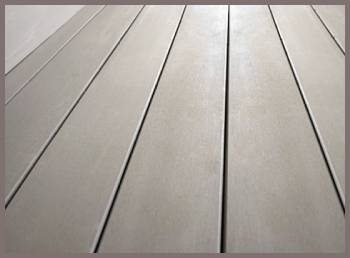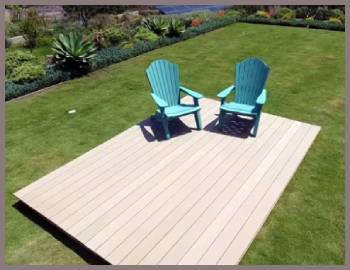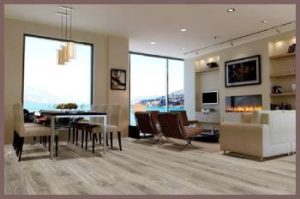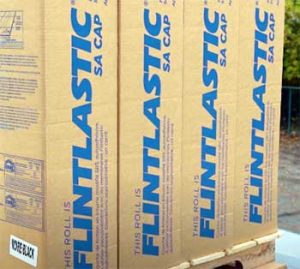Stepping out onto a beautiful deck, coffee in hand, is a morning routine many of us look forward to. What’s not as enjoyable? The maintenance and replacements that traditional wood decks often demand. But here’s where a game-changer enters the scene: Acre Decking.
Let’s dive deep into the world of Acre Decking, analyzing its pros and cons, and why it’s swiftly gaining popularity in households nationwide.
Pros of Acre Decking: Bringing Dreams to Reality

- Sustainability with Acre Decking
In an era where sustainability is a key concern, Acre Decking shines. Unlike traditional wood decking, Acre Decking uses rice hulls, a natural and renewable resource, to create high-performance, sturdy decks.
This means the environment takes less of a hit, and homeowners can rest easy knowing their beautiful deck is planet-friendly.
- Durability, a Standout Feature
When we think decking, we need to think long-term. That’s where Acre Decking truly scores. This decking is crafted from PVC (polyvinyl chloride), renowned for its durability. The material stands up against the harshest weather, resisting rot, decay, and insects, which are common pitfalls for wood decks.
So, sipping that hot cup of cocoa on a snowy day just got even better with an Acre Deck underfoot.
- Minimal Maintenance, Maximum Enjoyment
With Acre Decking, gone are the days of spending entire weekends scrubbing, staining, or sealing decks. The PVC construction requires little more than an occasional cleaning with soap and water. Low maintenance? Check.
Read More: About Paradigm LVP Flooring
Cons of Acre Decking: A Look at the Other Side

- The Price Point: An Initial Investment
Quality comes with a cost, and Acre Decking is no exception. The upfront cost is higher than its wood counterparts. However, considering the longevity and minimal maintenance, homeowners often find the initial investment paying off in the long run.
- Aesthetic Appeal: Can It Rival Natural Wood?
While Acre Decking offers several color and texture options, some purists argue that the synthetic material lacks the natural warmth and character of traditional wood. But for many, the trade-off of durability and low maintenance is worth it.
Frequently Asked Questions about Acre Decking
A well-maintained PVC deck like Acre Decking can last upwards of 25-30 years, if not more. Its resilience against environmental wear and tear makes it a long-lasting choice.
ACRE decking is made from a combination of rice hulls and PVC. The rice hulls, a by-product of rice farming, provide a sustainable element, while PVC offers durability and low maintenance.
Absolutely. PVC decking, like Acre Decking, offers durability, resistance to rot and decay, and requires minimal maintenance, making it a popular choice among homeowners.
Rice hull decking refers to decking materials that incorporate rice hulls, a by-product of rice farming. It’s an environmentally friendly option, as it repurposes this agricultural waste.
The main downsides are the higher upfront cost compared to traditional wood decks and the aesthetic factor, as some feel it lacks the natural warmth of wood.
PVC decking is generally considered more durable and resistant to environmental factors than composite decking. But both have their strengths.
Read More: About NuCore Rigid Core Flooring
Acre Decking vs. The Competition
As great as Acre Decking is, it’s not the only player in the game. Let’s take a look at how it stacks up against some of its fiercest competitors: Trex and Azek.
Trex: The Composite Contender
Trex decking, made from a blend of recycled wood and plastic, has been a popular choice among homeowners for its eco-friendly credentials. However, compared to Acre Decking, Trex falls a bit short in terms of durability and maintenance.
While Trex can mimic the look of wood more closely, it is more susceptible to staining and fading. Additionally, it requires more regular maintenance than the almost self-sufficient Acre Decking.
Azek: The PVC Protagonist
Azek, like Acre, is a major player in the PVC decking space. Known for its high-quality PVC decks, Azek provides stiff competition.
However, Acre’s introduction of rice hulls into their decking material gives them a unique, eco-friendly edge. While both offer similar durability and low-maintenance perks, Acre’s sustainable aspect may appeal more to the environmentally-conscious homeowner.
In a nutshell, while both Trex and Azek offer excellent decking solutions, Acre Decking’s combination of durability, low maintenance, and sustainability make it a prime choice in the market. The decision ultimately depends on your specific needs and preferences, but Acre Decking definitely holds its own in the competitive decking landscape.
Wrapping Up
In the world of decking, Acre Decking makes a compelling case for itself. Its combination of sustainability, durability, and low maintenance make it a standout option for those looking to invest in their homes and the environment.
Sure, there are valid concerns, like the initial cost and the subjective aesthetics. But for many, the pros far outweigh the cons. So, as you sip your coffee on your Acre Deck, you can relish in the fact that your little slice of outdoor heaven is here to stay, come rain, shine, or snowstorm. And that, we think, is a pretty good deal.
Remember, the best deck for you is one that fits your specific needs, aesthetics, and budget. So whether you’re looking at Acre Decking, Trex, or Azek, consider what you value most in your decking experience and make an informed choice. Happy decking!



